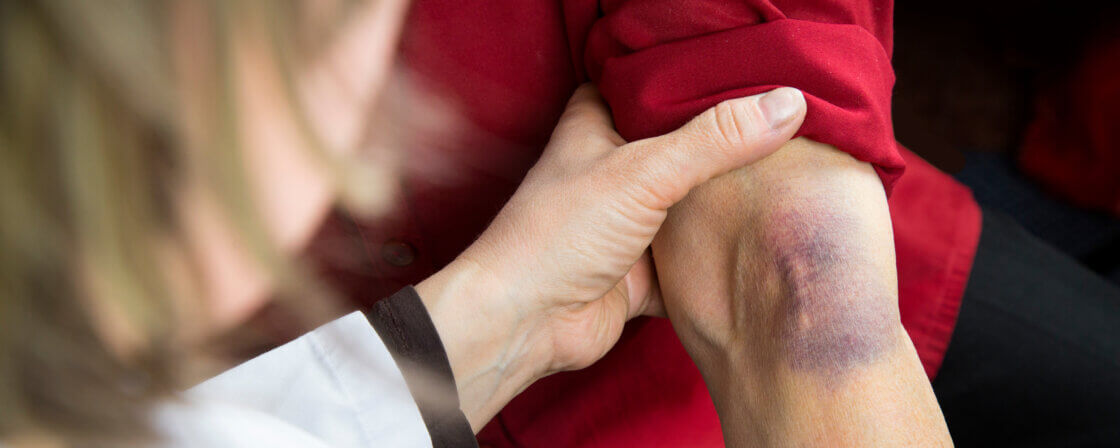What does bodily harm mean under the law
The concept of bodily harm is defined in the Criminal Code. Under the Criminal Code, bodily injury is defined as a condition that makes it difficult for the victim to lead a normal life for more than a short period of time – typically a few days or weeks.
The law distinguishes several degrees of severity:
- Minor bodily injury – typically involves a shorter period of treatment, such as a bump, minor fracture, concussion or burn.
- Serious bodily harm – a situation where the victim suffers more serious consequences. Serious bodily harm has long-term limitations. It typically involves loss of organ function, disfigurement, permanent damage to health or severe psychological harm.
The duration of the treatment, the intensity of the pain and the permanence of the consequences are relevant in assessing whether the injury is serious or slight. Serious bodily harm can mean loss of sight, hearing or severe brain damage. It is therefore a consequence that will fundamentally affect the quality of life.
Are you solving a similar problem?
We can help you with compensation
If you’ve been injured, don’t leave things to chance.
We can help you get fair compensation for your personal injury, whether it’s a negligent injury, a work injury, or a car accident.
That's what I'm wondering
- When you order, you know what you will get and how much it will cost.
- We handle everything online or in person at one of our 6 offices.
- We handle 8 out of 10 requests within 2 working days.
- We have specialists for every field of law.
Bodily injury as a felony or misdemeanour
Not all bodily harm is a criminal offence. It depends on the circumstances, the level of culpability and the consequences for the victim.
Negligent battery is often considered a misdemeanour. For example, it may be a minor traffic accident where a driver inattentively hits a pedestrian. However, if the injury is more serious or was caused deliberately, it may be a criminal offence of battery.
The punishment for battery can range from a fine to probation for battery, or even imprisonment. The severity of the consequences and the circumstances of the offence are decisive.
Criminal law thus protects not only health itself but also human dignity. Whether it is a physical assault, domestic violence or a serious traffic accident, the court always assesses how deep the injury was.
What to do when personal injury occurs
After an injury or assault, it is natural for a person to deal primarily with their health. However, it is also important to think about the legal side of things. Doing the right thing can make it much easier to claim personal injury compensation later on.
First, seek medical treatment immediately. A medical report is essential evidence of the extent of your personal injury. Get detailed documentation, including the length of treatment and a description of the injury.
Next, secure evidence and witnesses. If there was an accident or assault, record the circumstances, take photographs, and note witnesses.
Remember to report the incident. Call the police for a traffic accident, inform your employer at work, and file a criminal complaint for violence.
And finally, contact a lawyer. We can help you determine whether it’s a misdemeanor or a felony and advise you on how to make a proper personal injury claim.
Remember that settling a personal injury case out of court can sometimes be faster and more beneficial than a protracted lawsuit, but it is always a good idea to consult with a professional.
Tip for article
Tip: It is said that the person who knows us best can really hurt us the most. The phenomenon called domestic violence is clear evidence of this. Learn how to defend yourself.
What are the rights to compensation in personal injury cases
Anyone who has suffered an injury has the right to claim compensation for personal injury. The law recognises several types of claims that can be brought together:
- Pain – financial compensation for physical and psychological pain.
- Hardship to social life – if the consequences permanently limit the victim’s normal life or work.
- Medical expenses – medication, rehabilitation, transport to the doctor.
- Loss of earnings – if the victim cannot work temporarily or permanently.
- Compensation for costs associated with care – e.g. home adaptations, compensatory aids.
If there has been a death, survivors can claim a lump sum compensation.
How the amount of compensation is determined
The amount of compensation is based on the Supreme Court’s methodology for compensation for non-pecuniary personal injury, which takes into account the type and severity of the injury. However, individual circumstances – the length of treatment, the age of the victim or the extent of the consequences – are always taken into account.
As a rule, the doctor will assess the extent of the personal injury in accordance with the methodology or, where appropriate, in accordance with a specialist expert opinion. Each injury is assigned a certain number of points, the financial value of which depends on the severity and impact of the injury on the victim’s normal life.
For example, a broken arm may be worth around 100 points, a serious injury with a long healing period may be worth over 1 000 points.
Another factor for grievous bodily harm is the length of treatment. The longer the treatment and rehabilitation takes, the higher the compensation tends to be. It is also important whether the injury is permanent. A serious personal injury with permanent consequences may result in long-term loss of earnings or the need for care, all of which are reflected in the amount of compensation.
Limitation of a personal injury claim
Many people don’t know that even the right to personal injury compensation has a statute of limitations. According to the Civil Code, the claim is time-barred no later than three years from the date on which the injured party became aware of who caused the damage and the extent of the damage.
If he or she learns of the circumstances later (for example, after the end of the treatment), the time limit starts to run then.
Importantly, if you do not make a claim in time, the limitation period for personal injury compensation may mean that the court will no longer award you compensation. In severe cases, it may take longer to pursue a claim, but it is always better to act as soon as possible.
In our experience, we recommend that you consult your case with a lawyer straight away, who will look after the deadlines and the necessary documentation for you.
Tip for article
Tip: Find out what penalties you can face and how much you can pay if you hurt someone. For example, if you do not follow safety procedures at work or in a road accident.
What it looks like in practice
A fall at work: Ms Jana slipped on a wet office floor and suffered a broken arm. The employer was liable for the work injury, and the victim recovered personal injury damages and reimbursement for medical treatment.
Negligent Traffic Accident: driver failed to brake and struck a bicyclist. Police classified the case as negligent battery. The victim received compensation for personal injury in the form of an out-of-court settlement.
Assault in a bar: the assailant caused the victim grievous bodily harm – permanent consequences and loss of earnings. The court awarded the victim large damages for personal injury and the perpetrator was given probation for battery.
These examples show that every case is different – so it makes sense to contact a specialist to help you calculate a realistic compensation figure and choose the most appropriate course of action. Sometimes this can include out-of-court settlements.
Summary
Personal injury under Czech law includes both minor injuries (e.g. bumps, minor fractures) and serious injuries that have long-term or permanent consequences (e.g. loss of sight, brain damage), and can be classified as a misdemeanour or a criminal offence depending on the severity and circumstances. The victim is entitled to compensation, which may include pain and suffering, medical costs, loss of earnings, loss of amenity or care costs, and in the case of death, compensation for survivors. The amount of compensation is determined according to the Supreme Court’s scoring methodology and takes into account the length and severity of the treatment, the age of the victim and the permanence of the consequences. The key is to seek medical treatment immediately after the injury, secure evidence, report the incident and consult with an attorney. A claim must be filed within three years of the victim learning of the injury and the at-fault party, or it may be time-barred. In practice, it is also possible to resolve compensation out of court, which is usually quicker and less demanding than court proceedings.
Frequently Asked Questions
What is the difference between slight and serious bodily harm?
Minor harm has short-term consequences, while severe harm leads to long-term limitations or permanent consequences.
How is the amount of compensation for personal injury determined?
It depends on the injury score according to the Department of Justice tables and individual circumstances.
Can I claim compensation if the person at fault acted negligently?
Yes. Negligent battery can also be a misdemeanour, but you may still be entitled to compensation.
How long do I have to file a claim?
Generally, three years from the time you become aware of the damage and its originator. After the time limit expires, personal injury compensation may be time-barred.
Can I settle with the guilty party without a trial?
Yes, out-of-court personal injury settlements are possible – they are often quicker and less stressful than court proceedings.




